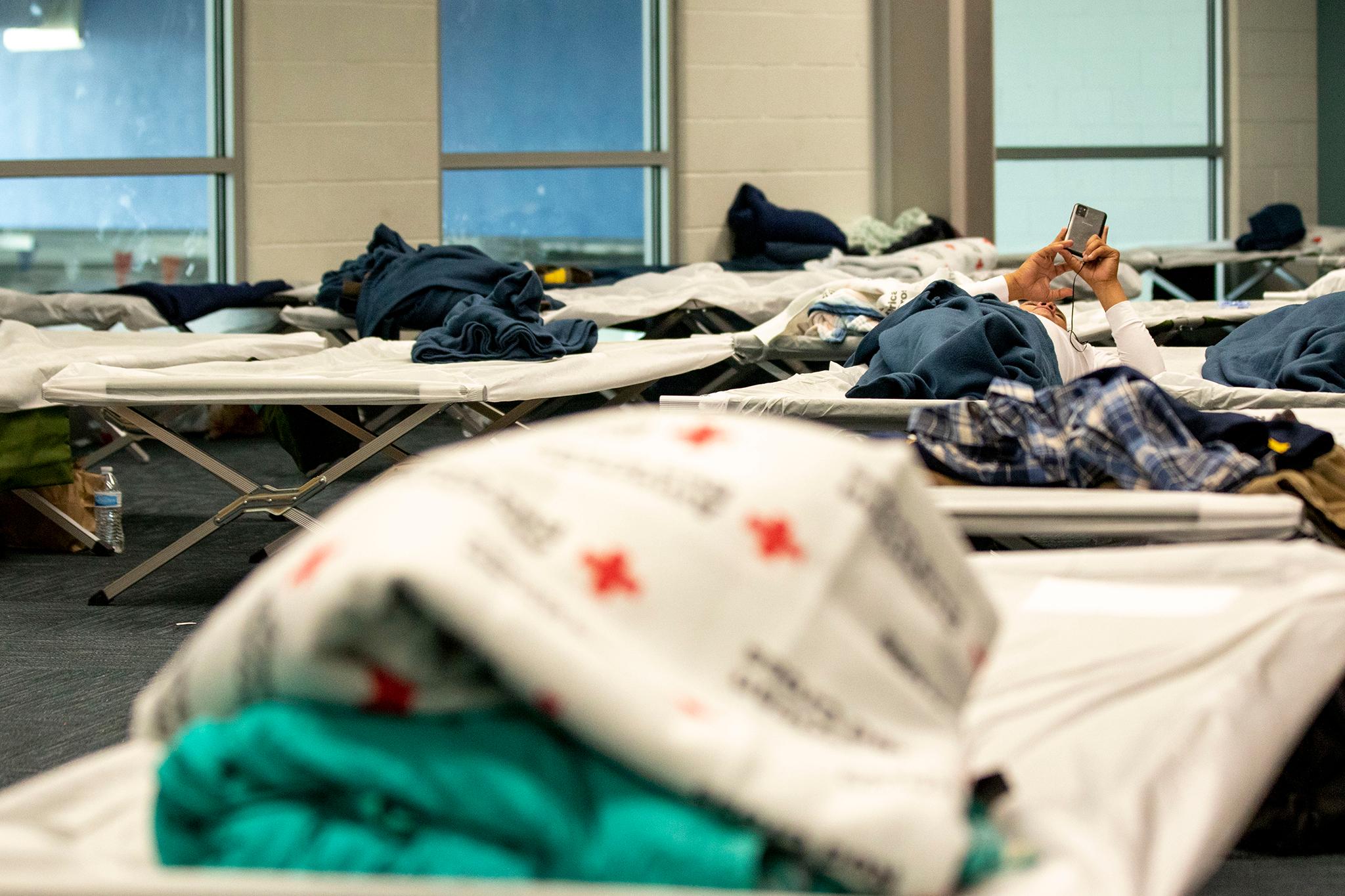The city and county of Denver has been awarded $1.5 million from the state to expand capacity and resources for the hundreds of migrants from the southern U.S. border that have arrived in Denver in the last few weeks and continue to do so.
"We need help," Denver Mayor Michael Hancock said at a press conference on Wednesday. The city made the request to the Colorado Department of Local Affairs.
"Cities are taking the brunt of the crisis, and we're all at a breaking point for much of the country. The immigration crisis is about to be compounded by another crisis, the arctic cold front that will be arriving in Denver today."
Micki Trost, a spokesperson with the state's government, said the funds can be used for shelters both in city properties as well as those run by third parties, like churches. It also pays for "supplies, language services, medical triage, food, clothing," staffing and transportation. She added the Department of Local Affairs' regional manager would be working closely with Denver officials as they continue to welcome people to the city.
Margaret Danuser, Denver's chief financial officer, told us the city applied for $1.5 million, specifically, based on what state officials told them was available. She added the money would cover about six weeks of emergency operations.
Hancock said the city is doing its best to respond to the current challenges, but noted Denver has limited resources to handle the influx of this many people.
"We're out of capacity to safely and humanely shelter people," he said. "Our finances are at the brink, and as the mayor and as members of city council, as agency leaders, we have to be honest and say we can't do any more. We have come to that point. And so we've got ongoing conversations with the state and federal government about that."
Hancock estimates Denver has spent around $2 million on shelter, transportation, food and other costs to host migrants. The city now has more flexibility on how to spend funds after the mayor issued an emergency declaration on Dec. 15, which the city council voted on Dec. 19 to extend.













